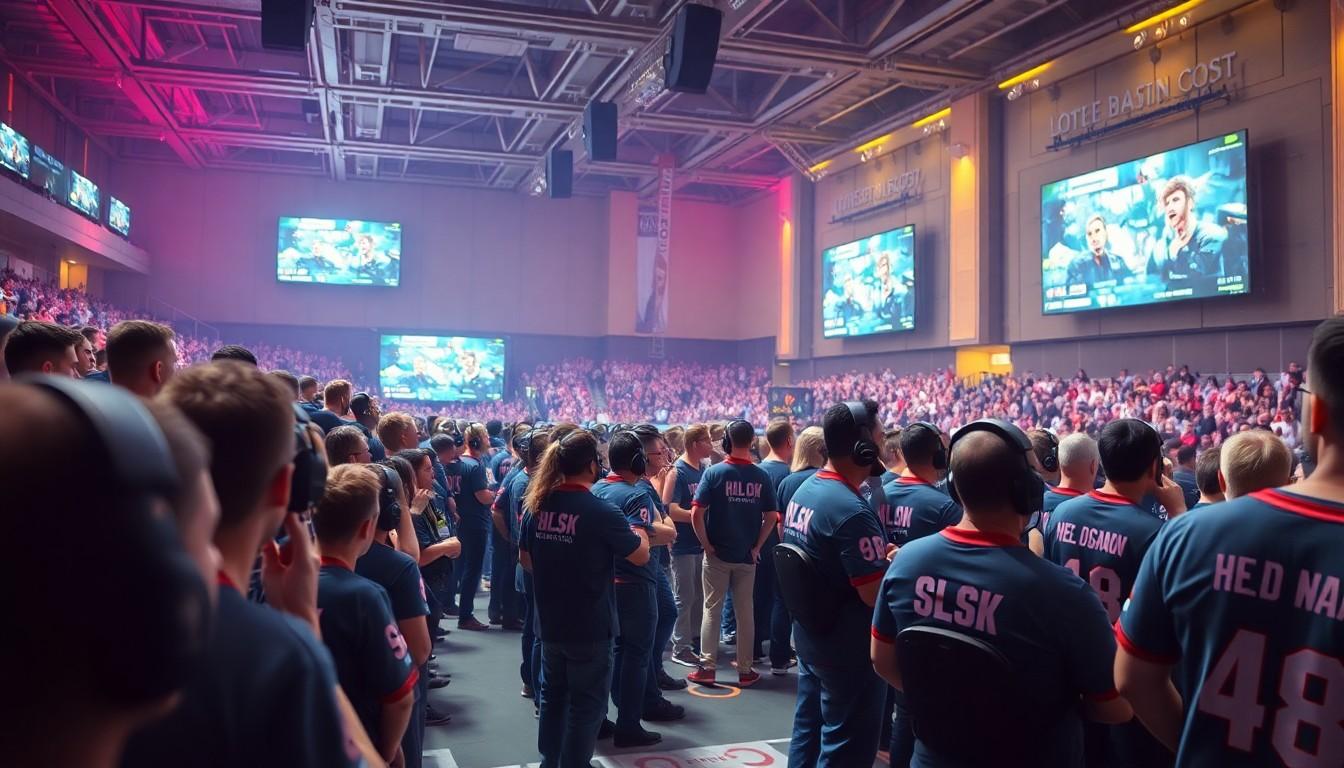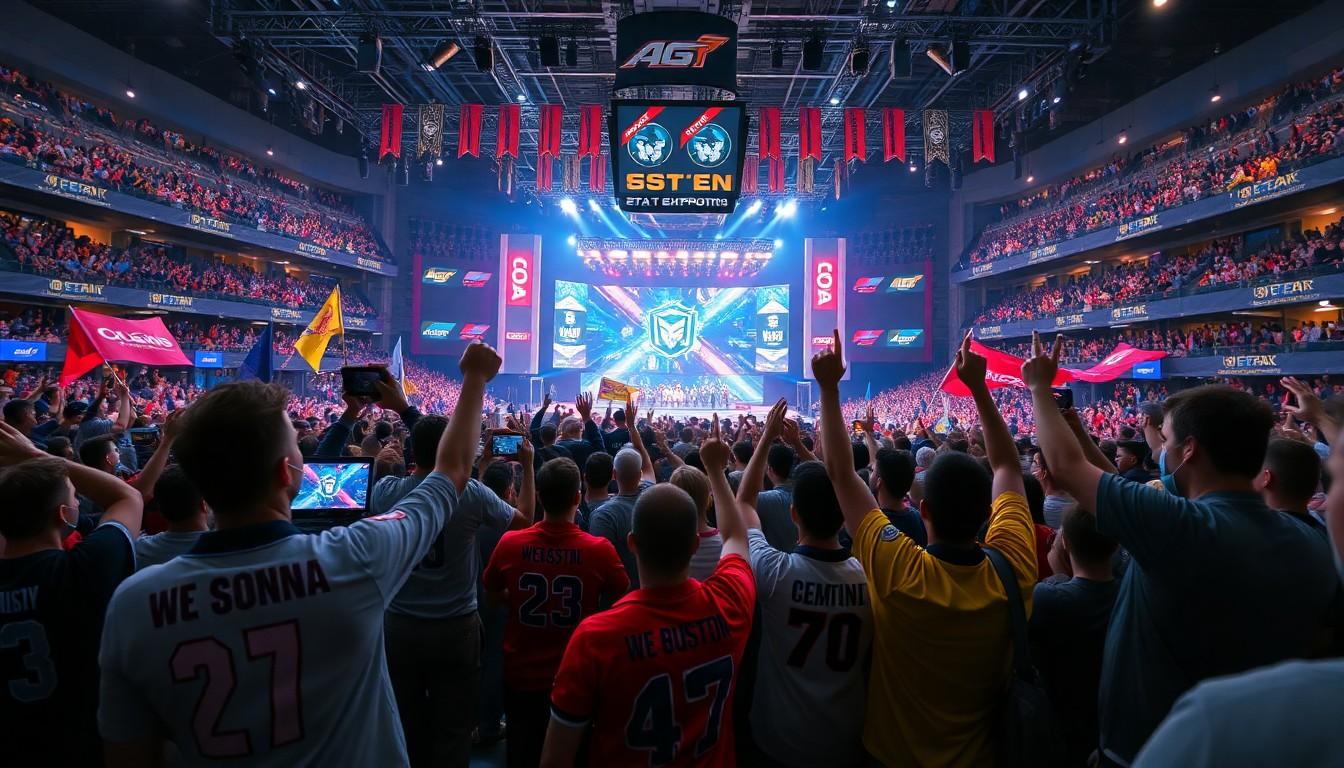In a world where digital warriors battle for glory, the unexpected cancellation of esports events due to spectator behavior has left fans scratching their heads and laughing at the absurdity. Imagine gearing up for an epic showdown only to find out that the crowd’s antics have turned the arena into a circus. It’s like planning a grand feast and discovering the guests are more interested in juggling the appetizers than enjoying the meal.
As the esports scene evolves, so do the challenges that come with it. Event organizers are now facing the hilarious yet serious dilemma of keeping the action on-screen while managing off-screen shenanigans. This quirky twist in the esports saga raises questions about the balance between fan engagement and maintaining a professional atmosphere. Buckle up as we dive into the wild world of esports cancellations and the spectators who can’t seem to keep their excitement in check.
Overview Of The Situation
Esports events encounter cancellations due to disruptive spectator behavior. This issue raises concerns as the industry aims for a professional environment.
Current Trends In Esports Events
Spectators’ engagement significantly influences current esports trends. The online community often prioritizes entertainment over competition. In 2023, event organizers reported a 30% increase in fan interaction through social media, reflecting this shift. Creative fan experiences are being developed to maintain interest while focusing on competition. Hybrid events, combining online and in-person elements, are gaining popularity. This approach balances audience connection with the need for decorum.
Impact Of Spectators On Event Logistics
Logistical challenges arise from unruly spectators during esports events. Disruptive behavior can cause delays, leading to increased operational costs. Organizers frequently address security concerns to maintain order, ensuring a professional atmosphere. Venues report up to 25% higher staffing needs in response to crowd control requirements. Effective communication with attendees plays a crucial role in preventing chaos. Proactive measures such as designated cheer zones may help mitigate disturbances and preserve the event’s integrity.
Reasons For Cancelling Events

Cancellations of esports events frequently arise from pressing issues concerning health and safety and regulatory restrictions. These factors necessitate decisive actions from event organizers.
Health And Safety Concerns
Crowds in gaming venues can pose significant health risks. Reports show that large gatherings can spread infectious diseases, prompting organizers to prioritize public health. In 2023, venues implemented stricter health protocols, reducing the number of attendees by up to 20% to mitigate risks. Additionally, increased surveillance for crowd control is essential, especially during high-stakes matches. Whenever incidents like overcrowding or incidents of violence occur, the safety of participants and viewers becomes paramount. Organizers face pressure to ensure a safe environment, influencing decisions about canceling events when necessary.
Regulatory Restrictions
Regulatory measures frequently impact the feasibility of hosting esports events. Governments may enact laws aimed at maintaining public order during large events, leading to potential cancellations. For instance, local authorities could impose attendance limits or restrict certain activities deemed disruptive, affecting event logistics. In 2023, incidents of crowd-related disturbances have prompted stricter regulations, forcing organizers to adapt quickly. Non-compliance with these regulations can result in hefty fines or complete event shutdowns. Therefore, event organizers must navigate these complexities while planning competitive gatherings.
Case Studies
Recent esports event cancellations spotlight the impact of disruptive spectator behavior on the industry. Organizers face challenges balancing fan engagement with maintaining a professional atmosphere.
Notable Events Cancelled Recently
Significant esports tournaments faced cancellation due to unruly spectators. For instance, the 2023 regional championship saw a shutdown after chaotic outbursts disrupted the matches, forcing organizers to prioritize safety. Another case involved a popular game convention where excessive noise led to an abrupt end of the gaming panels. These incidents represent a growing trend in which maintaining event integrity becomes more difficult amid rising spectator agitation.
Fan Reactions And Community Response
Fan reactions to these cancellations reveal a divided community. Some supporters voice frustration online, lamenting the loss of thrilling competitions while attributing responsibility to rowdy attendees. Others endorse stricter regulations and improved crowd management measures, recognizing that safety must come first. Community forums frequently discuss potential solutions, such as designated areas for celebration and strict enforcement of behavior guidelines. Engagement levels on social media surged, reflecting a 30% increase in fan interaction in 2023, demonstrating a strong desire to communicate and influence future events.
Future Implications
The landscape of esports events faces significant transformations as organizers address spectator behavior. Cancellations prompt a reevaluation of event planning.
Changes In Event Planning
Event planners must adapt strategies to accommodate increasing spectator unpredictability. They prioritize creating secure environments while still encouraging audience participation. Introducing enhanced crowd control measures, planners can respond to disruptive behavior. For instance, some events now deploy up to 25% more staff to manage crowds effectively. Furthermore, increased health protocols ensure safety, leading to a potential 20% reduction in attendance. By fostering designated areas for celebrations, organizers can maintain an enjoyable atmosphere and reduce chaos.
Shifts In Fan Engagement Strategies
Fan engagement strategies evolve alongside these cancellations. Event organizers actively pursue innovative methods to connect with audiences. Incorporating hybrid models that blend online and in-person experiences proves essential for maintaining interest. Social media’s influence remains significant, with a 30% increase in fan interaction observed. Offering virtual activities allows fans to participate regardless of in-person attendance. Additionally, effective communication plays a crucial role in informing attendees of behavior expectations. Implementing these changes highlights a commitment to both fan experience and the preservation of competitive integrity.
Conclusion
The recent cancellations of esports events due to spectator behavior highlight a critical turning point for the industry. As organizers strive to balance fan engagement with the need for a professional atmosphere, innovative solutions are essential. Enhanced crowd control measures and clear communication can foster a more respectful environment that prioritizes competition.
The esports community must adapt to these changes, embracing hybrid models and designated areas for celebration. By addressing the challenges posed by unruly crowds, the industry can protect its integrity and promote a safe experience for all. The future of esports events hinges on the ability to create engaging yet orderly environments that celebrate both competition and community.

